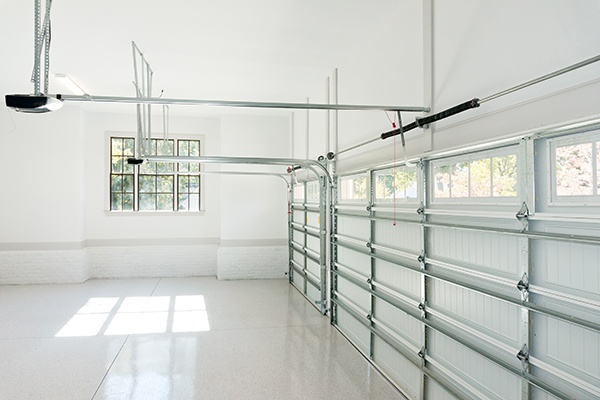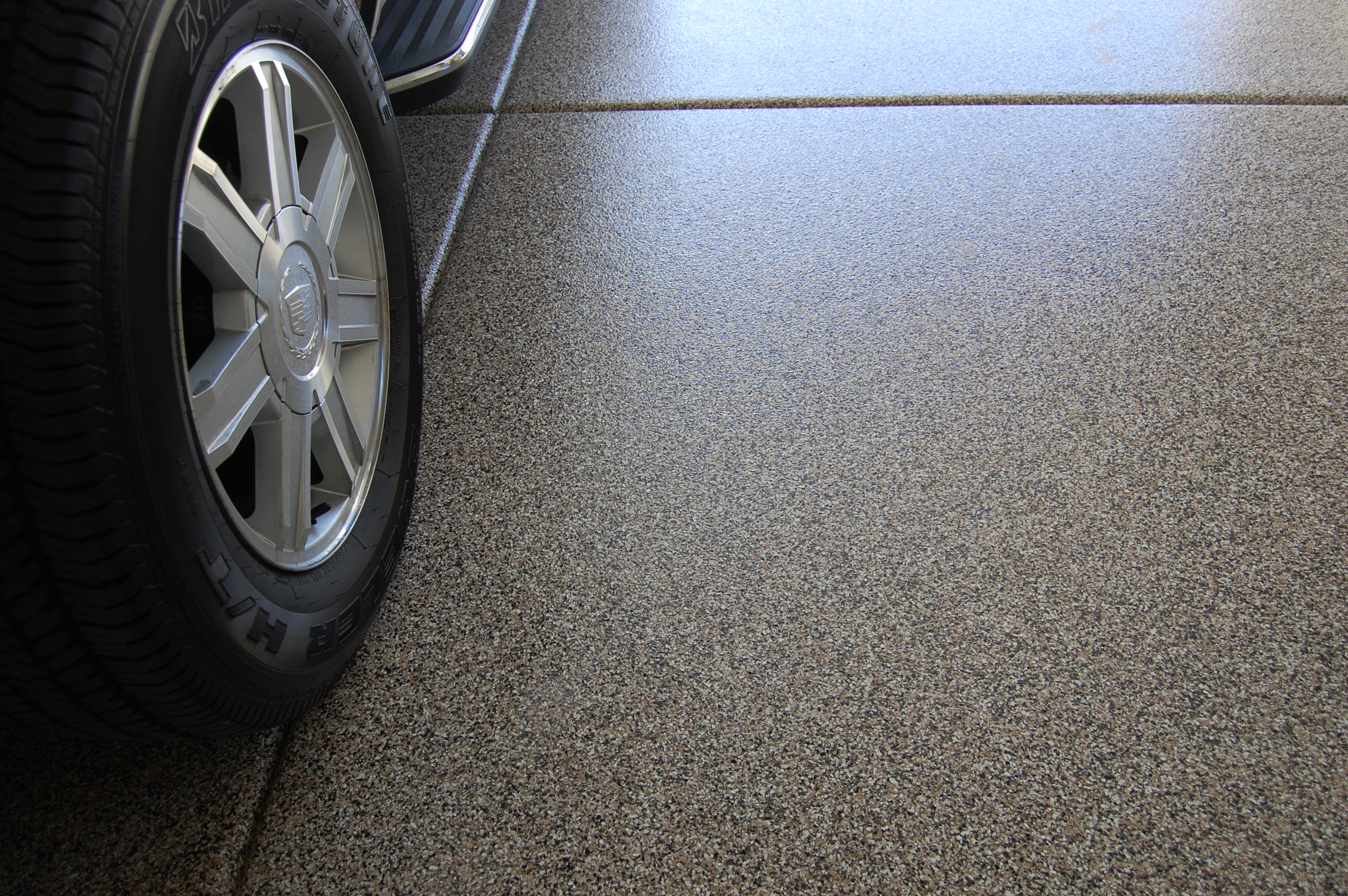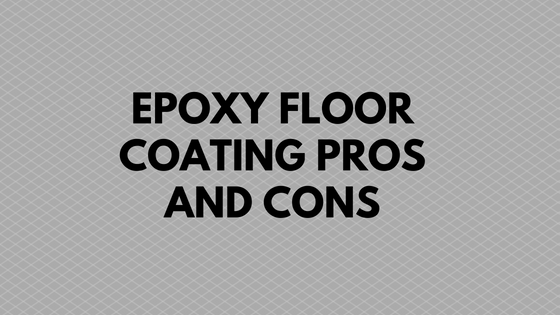When you’re considering options for your garage floor, you’re faced with a wide range of choices, each with its own advantages and disadvantages. Let’s examine the pros and cons of these flooring options and dive into the costs.
Note that every one of these options looks great, adds value to your home, helps prevent slips, and protects your garage floor.
1. Professional or DIY Epoxy Coating
This is our number one seller because it is durable, long-lasting, and offers a wide range of color and style options. It’s resistant to impacts, chemicals, and stains and is easily cleaned and maintained. It can be applied to any hard surface and works particularly well with concrete. It has a short curing time of 18 to 24 hours, so you’re not inconvenienced for any length of time. The one downside is that it is not suited to high humidity environments, because the humidity hinders its sealing with the concrete.
Epoxy coating also lends itself to a do-it-yourself approach that can offer some financial savings. However, it takes time while you develop your expertise and experience through trial and error. It also requires the purchase of materials, tools, protective wear, and renting an electric floor maintainer to prepare the floor. In contrast to a professionally applied epoxy coating, there is no warranty. You’ll also likely need to apply a follow-up coating every couple of years. For these reasons, we do not recommend DIY epoxy coatings.
2. Ceramic and Stone Tile Flooring
This type of flooring looks incredible and comes in a variety of materials, textures, styles, and colors. It also has an extremely long lifespan. However, ceramic and stone is prone to staining, breaking, and cracking. The tiles also require grout that must be replaced from time to time. It makes for a gorgeous floor but not without its challenges.
3. Flexible Plastic Tile Flooring
This is one of the strongest and longest lasting tile systems. There are also quite a few options within this category including hard plastic, flexible PVC, and vented. It is non-slip, even when wet, and can easily be cleaned. Unlike stone tiles, there is no cracking, but it does pick up stains. There are also challenges around extremes of heat and cold due to expansion and contraction of the tiles.
4. Polished Concrete Flooring
The use of concrete dyes allows for a wide variety of color and pattern options, then polishing achieves the exact level of shine you’re seeking. It’s much more durable than stone or ceramic tile and doesn’t require grout. It easily cleaned and withstands high humidity and moisture. The one major downside is that it has a lengthy curing time of two to four weeks.
5. Garage Flooring Costs Compared
The cost ranges for each major type of garage flooring aren’t all that different, at least at the low end of the scale.
- Epoxy coating starts at $3 and runs up to $12 per square foot.
- Tile flooring also starts at $3 up to $6 per square foot.
- Polished concrete runs from $3 to $8 per square foot, with demanding coloring and/or patterns up to $15 per square foot.
With a starting cost of $3 per square foot, an average one-car garage at 250 square feet would be $750. A two-car garage at 500 square feet would be $1,500.
These ranges include professional installation. A DIY approach can save money. However, it takes extra time and at least a handyman’s level of competence. Plus, you’ll need to re-coat every few years.
We feel it’s best to work with a professional with years of experience and all the tools of their trade to get everything done to your complete satisfaction. You can also rest assured that they will provide a garage floor that you’ll be proud of and that will last.
Now is the time to begin considering types of flooring and what works within your budget. We can provide the exact prices for your garage for every flooring option you’d like to consider.
Contact Boston Garage today and request a free on-site consultation. We’d love to help you make your garage dreams come true!




